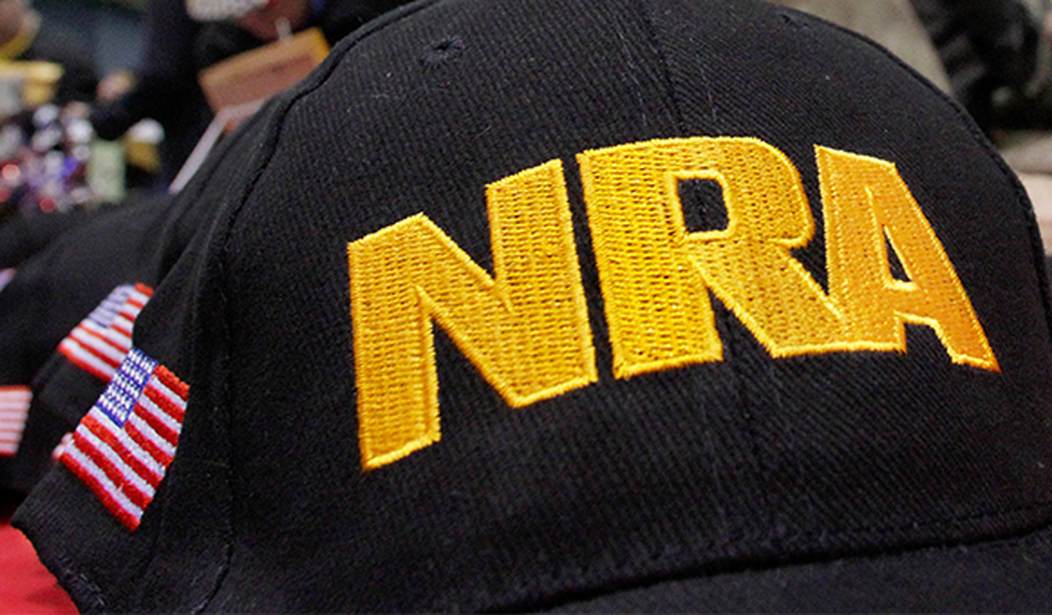The anti-gunners are at it again, this time smearing the NRA in the pages of Rolling Stone with the help of Everytown's "news" organization The Trace.
Reporter Mike Spies detailed the tragic death of an NRA staffer named Dawn Williams-Stewart, who was killed by her husband Antonio Stewart in 2008. According to Spies, several of Dawn's co-workers became aware of the abuse that she was suffering, and tried to help her escape the dangerous situation she was in. But Spies says what Dawn really needed was a "red flag" law, something that wasn't adopted in Maryland until 2019.
Dawn and Rowling had recently discussed getting a restraining order against Stewart. Dawn had been reluctant because she thought it might inflame him, so Rowling said the NRA would help when she was ready. On the day she saw Dawn’s jaw, Rowling insisted it was time to move forward and meet with Gordon Russell, then the NRA’s head of security. The three gathered together, and Dawn described her situation. Russell instructed her to get a restraining order. The NRA’s general counsel, the investigative notes say, sent Stewart a letter informing him that he was prohibited from the organization’s property.
It’s unclear whether Dawn followed through with the restraining order, but even if she had, that legal process can be convoluted and unreliable, especially when a gun is involved. What she needed was an Extreme Risk Protection Order, obtainable under a red-flag law. Such a statute expressly provides a person in Dawn’s position the opportunity to go before a judge and make a case under oath that her husband should be immediately disarmed because access to firearms puts her life in imminent danger.
It sounds to me like the NRA as an institution and the individual coworkers who were aware of what Williams-Stewart was going through did everything in their power to help her, but as Spies says, it's unclear whether Dawn went through the steps to obtain a restraining order.
Spies, however, leaves out the fact that a judge could have ordered Stewart to turn over any legally owned firearms if a domestic violence protective order had been issued. And despite his contention that Maryland's "red flag" law requires individuals to be "immediately" disarmed, guns are only "immediately" taken if someone is served with an Extreme Risk Protection Order in person by a police officer. If they receive notice of an ERPO via mail, the subject of the petition instead is instructed to "contact the law enforcement agency designated in the order and arrange for the immediate surrender of all firearms and ammunition in their possession", but that immediacy is negated by using the post office to deliver the Extreme Risk Protection Order, and it leaves compliance entirely up to the ERPO recipient.
As it turns out, police were made aware of the threat to Williams-Stewart's life before she was killed. Dawn was killed just a few minutes after her friend came to her door and heard her crying, "Wendy help me, he gon kill me. Wendy help me, he gon kill me.” That friend contacted police, who showed up at the home and kicked in the front door in an attempt to rescue Dawn, who had allegedly been dragged to the basement by Stewart. As police entered the home, shots were fired, and the officers found Dawn bleeding on the basement floor while Stewart managed to escape by running out the back door.
Who's to say that Stewart wouldn't have targeted his wife as police were trying to serve the ERPO, or that he wouldn't have used his fists and feet to kill her if his legally owned gun had been taken away? Beyond the lack of due process inherent in "red flag" laws, one of the biggest flaws with ERPO laws is that they're all about the gun, not the supposedly dangerous person who owns them. Once any lawfully possessed firearms are taken from their rightful owner, the ERPO process is complete, leaving the subject free and clear to use a knife, a baseball bat, or their bare hands to inflict injury or death on their victims.
The Rolling Stone headline claims "A Gun Law the NRA Opposes Could Have Saved Its Employee's Life", but there's a lot riding on the use of the word "could". Maryland's domestic violence protection order, which was already in place, could also have stopped Stewart from legally possessing a gun. If Dawn had decided to pursue criminal charges against her husband, that could have saved her life. For that matter, Maryland's "may issue" carry laws, which were in place at the time, could have prevented Dawn from being able to carry a firearm for her protection. And perhaps most importantly, even if Maryland did have a "red flag" law in place at the time, it wouldn't have stopped Stewart from killing his wife even if his guns had been taken away.
Spies says when he reached to the NRA for comment, he received an email accusing The Trace and Rolling Stone of "politicizing the tragic murder of a member of the NRA family in an attempt to support a specious argument about ‘red-flag’ laws.” I think that's exactly right. The gun control lobby is utterly shameless when it comes to advancing their disarmament agenda, but using Stewart-Williams' murder as a way to stump for "red flag" laws is a new low for The Trace.










Join the conversation as a VIP Member